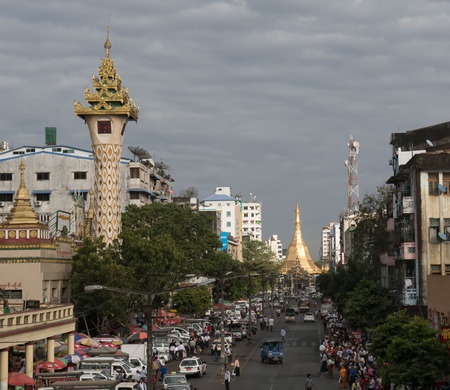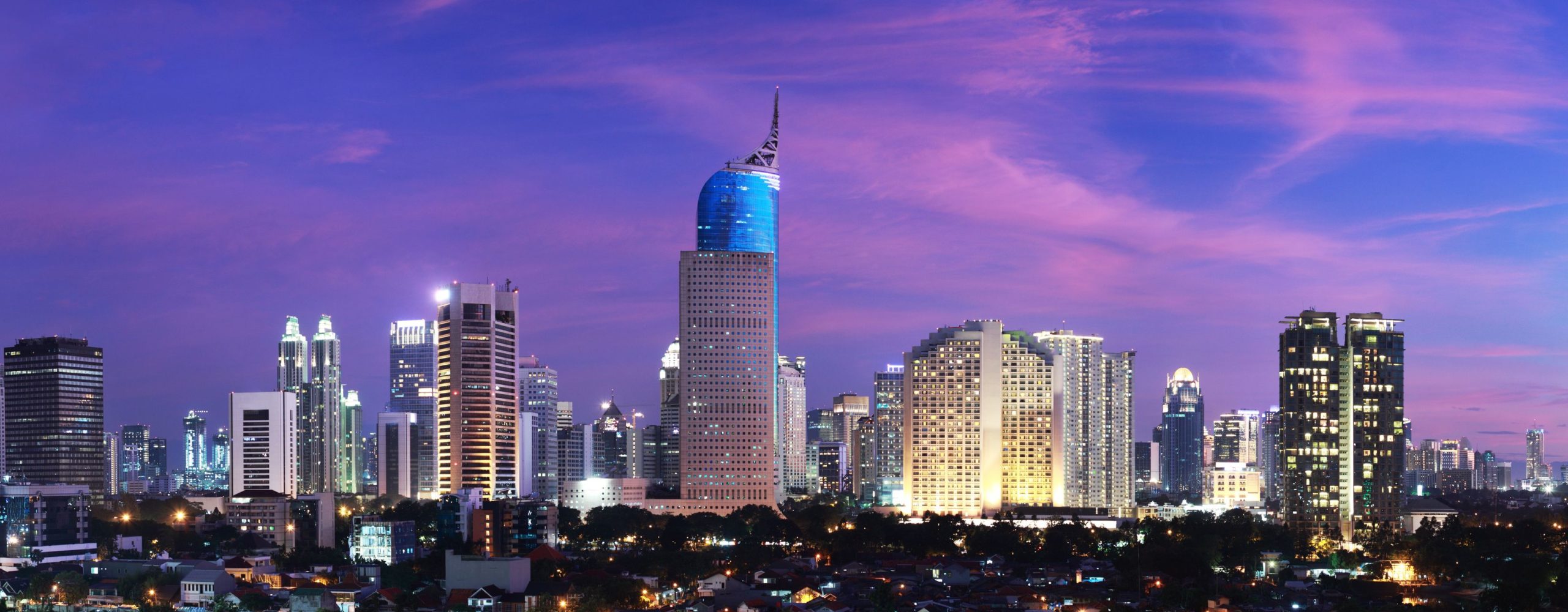13 October, 2016
Myanmar is one of the world’s last business frontiers. For about half a century, this military-ruled and dominated Southeast Asian country was isolated, impoverished and wracked by internal strife. However, since the establishment of a quasi-civilian government in 2011, steps have begun to be taken to open up Myanmar to foreign trade and investment and gradually move towards firmer civilian rule.
The last few months have seen especially rapid change. On 1 April 2016, a new National League for Democracy (“NLD”) government took office, bringing to an end rule by the military-dominated Union Solidarity and Development Party. Myanmar icon and Nobel Laureate Daw Aung San Suu Kyi (“Daw Suu”) leads the NLD, and is a State Counsellor and Minister for Foreign Affairs in the current government.1 The current President of Myanmar is U Htin Kyaw, Daw Suu’s close confidant.
For decades, the United States of America (“US”), the European Union (“EU”) and Australia, amongst others, imposed economic sanctions on Myanmar, as a means of punishing the Myanmar government for what these nations saw as a general disregard by the Myanmar military (the Tatmadaw) for the Myanmar people’s human rights and civil liberties. In the wake of Daw Suu’s meetings with US President Barack Obama on 14 September 2016 (“Meetings”), it was announced that President Obama intended to terminate the national emergency with respect to Myanmar,2 and that all remaining sanctions would be lifted.
On 7 October 2016, US President Obama issued an Executive Order (“EO”) on “Termination of Emergency with Respect to the Actions and Policies of the Government of Burma” (“7 Oct EO”), thereby terminating the national emergency declared in EO 13047 of 20 May 1997 with respect to Myanmar and revoking the slew of EOs previously issued to sanction Myanmar.
This article briefly sums up the US sanctions that were in place before their removal on 7 October 2016:
US Sanctions
The main body of Myanmar-focused sanctions was passed between 1988 (in response to the 1988 military crackdown) and 2007. The US sanction regime in Burma was contained in a web of overlapping rules, subject to differing restrictions, waiver provisions, expiration conditions and reporting requirements that were contained in six US federal laws, five presidential EOs and several presidential proclamations and determinations.3 These sanctions can be categorized broadly into seven categories: visa bans; restrictions on financial services, freezing assets of certain Myanmar nationals; prohibition on imports from Myanmar; prohibitions of imports from certain companies connected to Myanmar; a ban on investing in Myanmar and restrictions of providing bilateral or multilateral assistance to Myanmar.4
A brief summary of past sanctions are reflected in the table below:
| Sanction |
Legislation / Presidential Executive Order (“EO”) / Presidential Proclamations |
|
General sanctions to curb the narcotics trade |
Section 138 of the Customs and Trade Act of 1990; |
|
Withholding US contributions to certain international organisations with programmes in Myanmar. |
Section 307 of the Foreign Assistance Act as amended by the Foreign Relations Authorization Act, Fiscal Years 1994 and 1995; |
|
Various sanctions connected to human rights and democracy standards |
Section 570 of the Foreign Operations, Export Financing, and Related Programmes Appropriations Act, 1997 |
|
Ban on importing Myanmar products (including Myanmar jadeites5 and rubies), freezing assets of certain Myanmar officials, blocking US support for loans from international financial institutions and visa bans for certain Myanmar officials |
The Burmese Freedom and Democracy Act of 2003; The Tom Lantos Block Burmese JADE (Junta’s Anti-Democratic Efforts) Act of 2008; EO 13310; EO 13448; EO 13464 and EO 13619; Proclamation 6925; Presidential Determination No. 2009-11 |
|
Ban on new investments in Myanmar |
EO 13047; Section 570 of the Foreign Operations, Export Financing, and Related Programmes Appropriations Act, 1997 |
|
Authorises the president of the US to impose certain kinds of trade or financial sanctions on what is declared to be a “national emergency” |
International Emergency Economic Powers Act of 1997 (“IEEPA”) read with the National Emergencies Act (“NEA”). |
Since 2012, sanctions imposed by the US have been gradually eased, although some remained until 7 October 2016. The IEEPA read with the NEA authorises the U.S. President to declare a national emergency and thereby impose economic and trade sanctions in response to the unusual and extraordinary threat to the US. With respect to Myanmar, US President Bill Clinton, by EO 13047, declared such a national emergency on 20 May 1997. The IEEPA was renewed by President Obama’s administration in May 2016 and, as such, the US State Department’s Responsible Investment Reporting Requirements (“Requirements”) remained effective. Under the Requirements it used to be the case that any US citizens or US companies must file an annual report with the US State Department that details that individual’s or company’s dealings with Myanmar individuals or companies and their policies and procedures in relation thereto.
The US Department of the Treasury’s Office of Foreign Assets Control (“OFAC”) published a Specially Designated Nationals List (“SDN List”), listing individuals and entities connected with Myanmar such that US citizens or entities were prohibited from dealing with them. OFAC promulgated the past sanction regime in 1997. In 2012, the sanctions regime was eased, with minor US investments being allowed to enter the Myanmar market. Earlier in 2016, the OFAC eased the sanctions further by removing several state-owned enterprises and banks from the SDN List.6 However, some sanctions remained, including a ban on importing into the US rubies and jade sourced from Myanmar.7
The Winds of Change
The new Executive Order of 7 October 2016, terminating the “national emergency” and revoking the related Executive Orders does the following:
- Lifts the import ban on rubies and jadeites of Myanmar origin into the US;
- Lifts immigration restrictions on specified Myanmar nationals and removes all individuals from the SDN List. However, this will not affect Myanmar nationals who are subject to separate sanction regimes, e.g., counter-narcotics sanctions;
- Terminates all OFAC restrictions on banking with Myanmar. This includes a suspension of a prohibition by the Financial Crimes Enforcement Network (“FinCEN”) against US financial institutions maintaining correspondent accounts for Myanmar banks. However, it should be noted that the suspension is contingent on Myanmar’s progress in addressing money laundering, corruption and narcotics-related activities. FinCEN will remove the prohibition entirely when Myanmar has made sufficient progress on this front; and
- Removes the requirement to comply with the State Department’s Responsible Investing Reporting Requirements.
This is now voluntary.
President Obama has also stated that the Generalized System of Preferences (“GSP”) in relation to Myanmar will be restored. The GSP, established by the Trade Act of 1974, is the largest and oldest US trade preference programme. It eliminates duties on up to 5,000 types of products when imported from one of 122 designated beneficiary countries and territories.8 Without the GSP, from which Myanmar was excluded in 1989, Myanmar’s products were subject to duties of up to 17 percent when imported into the US. With its reinstatement into the GSP, Myanmar’s exports to the US will be cheaper. However, Myanmar will have to meet certain obligations in order to remain a part of the GSP. They include implementing more effective IP protection and observing internationally-recognised workers’ rights; refraining from nationalizing, expropriating or otherwise seizing US citizens’ or corporations’ property; and implementing any commitments that it has made to eliminate the worst forms of child labour.9
Another plank in the US’ détente with Myanmar is the proposed Burma Strategy Act of 2016 (“Burma Strategy Act”), which was introduced on 13 September 2016.10 The legislation lends additional support to Myanmar’s political transition and economic growth. Among other things, the Burma Strategy Act creates the Win Tin Burma-American Enterprise Fund to incentivise private sector investment in Myanmar. It calls for the US Trade Representative (“USTR”) to work with the relevant Myanmar entities and individuals to help Myanmar meet the eligibility criteria for the GSP. The legislation also sets benchmarks and guidelines for sanction relief, including calling on the Secretary of State to assess and make recommendations regarding the modification and lifting of sanctions.
To sum up, President Obama’s lifting of the remaining sanctions is historic and part of a shifting international attitude towards Myanmar that is becoming increasingly bullish, in response to the Myanmar government’s reforms. Apart from the lifting of US sanctions, the European Union (“EU”), the United Kingdom (“UK”) and Australia have almost completely lifted their respective sanctions against Myanmar, leaving in place only embargoes on weapons and related materiel. Therefore, investment into Myanmar will become easier and more attractive, although of course, challenges still remain. This very positive step by the United States means that with the appropriate advice and guidance in place, the fruits of Myanmar’s opportunities are ripe for the picking.
Notes
1 Daw Aung San Suu Kyi is constitutionally barred from taking the office of the President under Article 59(f) of the 2008 Myanmar Constitution, which bars from the office of President inter alia anyone whose legitimate children “owe allegiance to a foreign power… subject of a foreign power or [are a] citizen of a foreign country.” Daw Aung San Su Kyi’s two children are British nationals.
2 US Treasury, Office of Foreign Assets Control (“OFAC”), FAQs on Changes to the Burma Sanctions Programme, online:https://ustr.gov/issue-areas/trade-development/preference-programs/generalized-system-preference-gsp, accessed on 21 September 2016.
3 Michael F. Martin, “U.S. Sanctions on Burma”, Congressional Research Service Report for Congress, October 19, 2012 (“US Sanctions in Burma”) at pages 1-2.
4 US Sanctions in Burma, at pages 14-15.
5 “Jadeites” are a type of metamorphic rock, which, along with nephrites, are both collectively referred to in the common parlance as “jade.”
6 Seven state-owned enterprises were removed: Myanmar Timber Enterprise, Myanmar Pearl Enterprise, Myanmar Gem Enterprise, No. 1 Mining Enterprise, No. 2 Mining Enterprise, No. 3 Mining Enterprise, and Co-Operative Export-Import Enterprise. Additionally, three state-owned banks were removed: Myanmar Economic Bank, Myanmar Foreign Trade Bank and Myanmar Investment and Commercial Bank.
7 The Tom Lantos Block Burmese JADE (Junta’s Anti-Democratic Efforts) Act of 2008 (“JADE Act”).
8 Office of the United States Trade Representative, online:https://ustr.gov/issue-areas/trade-development/preference-programs/generalized-system-preference-gsp, accessed on 15 September 2016.
9 GSP statute at 19 USC 2461-2467; U.S. Generalized System of Preferences Guidebook, published by the United States Trade Representative (“USTR”), October 2015, online:https://ustr.gov/issue-areas/trade-development/preference-programs/generalized-system-preference-gsp .
10 Introduced by US Senators Ben Cardin (D-Md.), Ranking Member of the Committee on Foreign Relations, and John McCain (R-Ariz.), Chairman of the Committee on Armed Services.
For further information, please contact:
Jamie Benson, Director, Duane Morris & Selvam
jbenson@duanemorrisselvam.com

.jpg)

(1).jpg)



